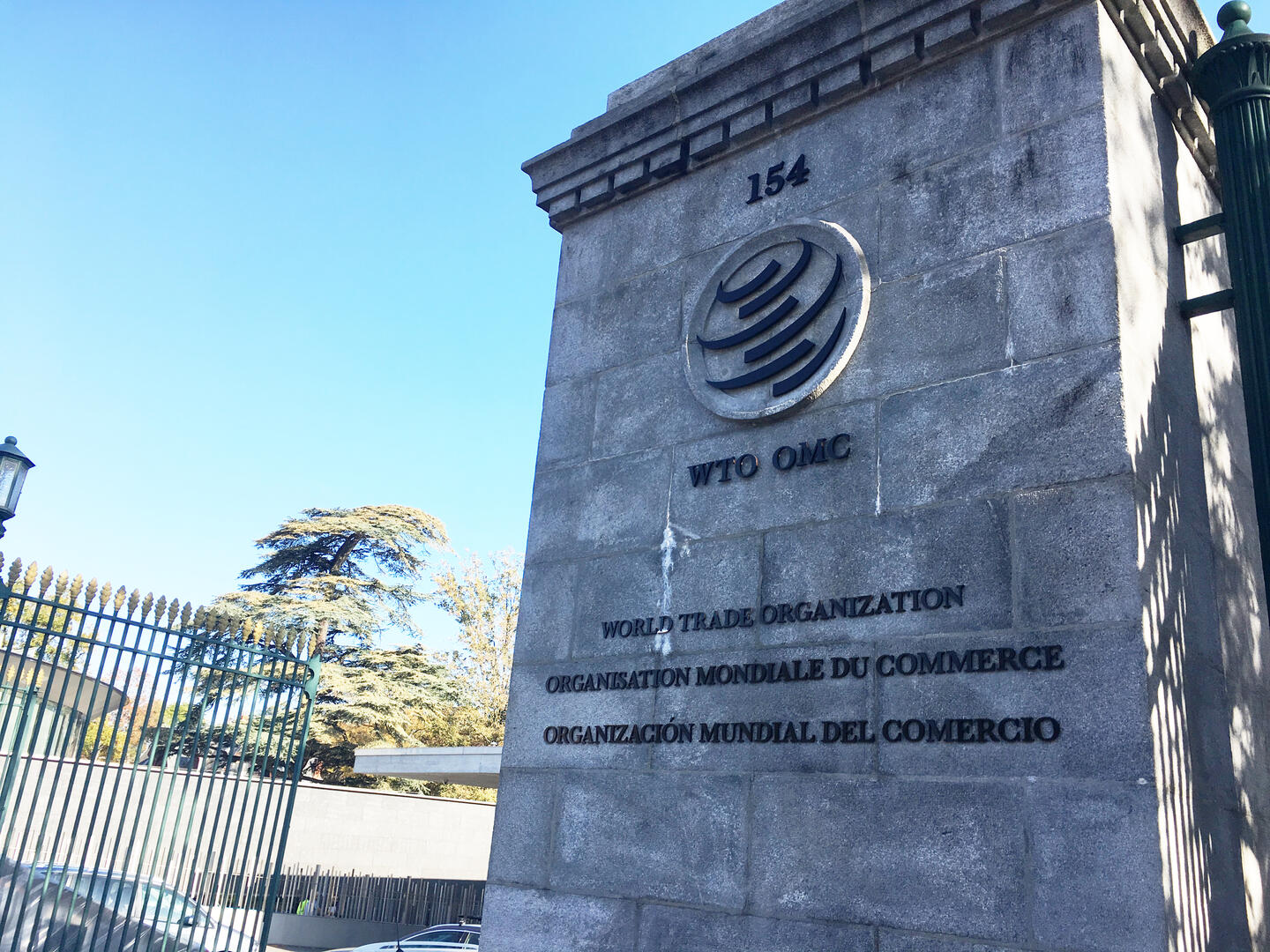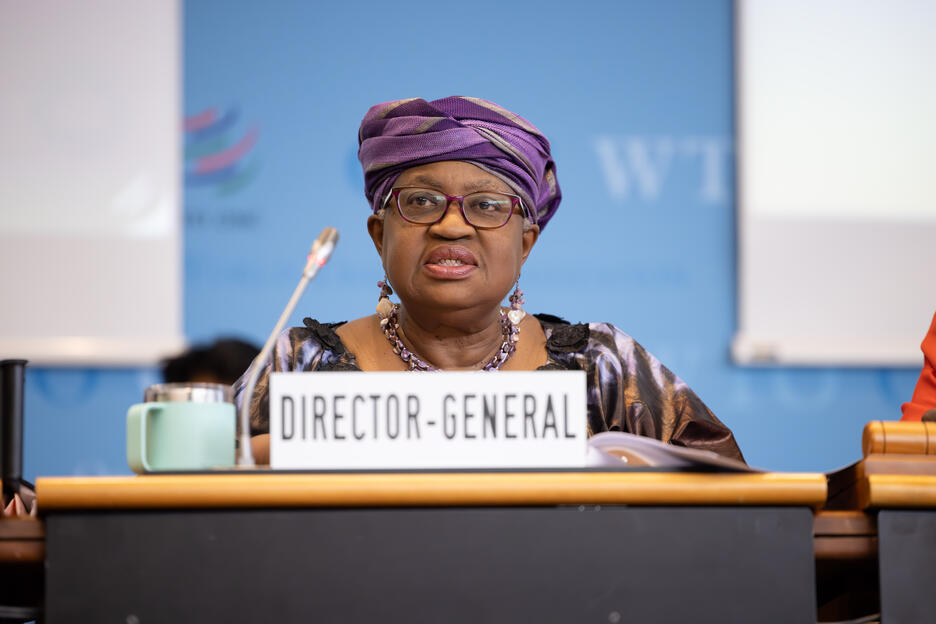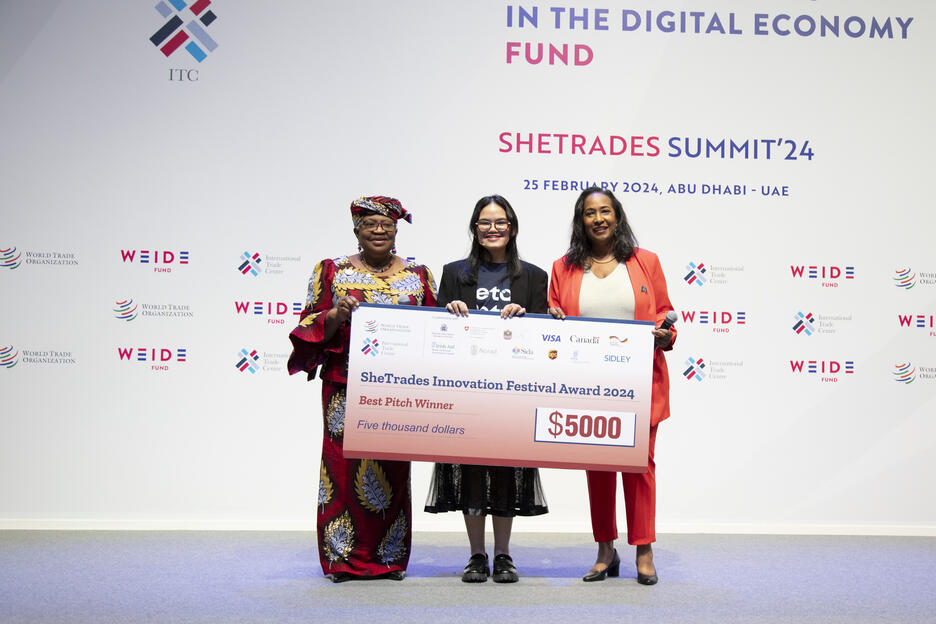
Seizing the opportunities in a challenging environment for trade
The past few years have been difficult ones for global trade, between the COVID-19 pandemic, geopolitical tensions, trade barriers, and conflict, not to mention the climate crisis.
And yet trade has been resilient.
Global goods and services trade in 2023 was worth $30.4 trillion – close to an all-time high. At the end of last year, merchandise trade was 6% higher, in volume terms, than the pre-pandemic peak in 2019. The value of services trade was up 21% from pre-COVID levels.

The seeds of this resilience were sown over decades, going back to the establishment of the World Trade Organization thirty years ago – and indeed a half-century further to the 1944 Bretton Woods Conference and the subsequent creation of the rules-based multilateral trading system.
Cross-border trade and investment ties developed over years of predictably open international markets have stood up well, for the most part, to shocks from the global financial crisis to the pandemic and the war in Ukraine.
Increased trade has gone hand-in-hand with improvements in human well-being. Over the past thirty years, the value of world trade nearly quintupled, and faster trade-enabled growth helped lift over 1.5 billion people out of extreme poverty.
Between 1995 and 2022, low- and middle-income economies doubled their share in global exports from 16.5% to 32% - and the share of their populations subsisting on less than $2.15 per day dropped from 40% to 10%.
Rich countries have also benefited from increased export opportunities, better access to inputs, and expanded purchasing power, particularly at the lower end of the income distribution. Peterson Institute researchers find that international trade has boosted US GDP by 10% as of 2022, equivalent to $19,500 per household annually.
Nevertheless, we must also recognize that not everyone shared in this progress. Many poor countries, especially in Africa, were unable to tap into growing international markets. And within some rich countries, many poor people and places were left behind by economic and social change.
The latter in particular helped fuel a political backlash against trade – a backlash that has been amplified both by geopolitical rivalries and by the pandemic-era supply disruptions that revealed vulnerabilities arising from overconcentration in some products and trading relationships.
We have seen a growing spate of trade restrictions, subsidies and other industrial policy measures, motivated by security as well as climate considerations. These have been a factor in the fragmentation that has started to show up in the economic data, with trade and investment flows moving increasingly in line with countries' geopolitical alignment.
Allowing fragmentation to deepen would be very costly. [WTO economists estimate that if the world economy decouples into two self-contained blocs, the resulting losses would be at least 5% of real global GDP – worse than the damage from the global financial crisis.] Growth prospects for small, developing economies would be hit hardest.
The good news is that within the challenges we face, there are opportunities to use trade to drive growth, resilience, socioeconomic inclusion, and environmental sustainability.
We can make supply chains more resilient to shocks by bringing countries and communities from the margins to the mainstream of global production networks – what we at the WTO call 're-globalization'. This would also foster growth, development, and job creation in places in Africa, Latin America, and Asia that have not shared adequately in the benefits from trade.
Connecting more micro, small, and medium-sized enterprises and women-owned businesses to global markets would foster socioeconomic inclusion.
Trade is indispensable to diffuse low carbon technology, and has already helped lower the cost of solar and wind energy. But we can accelerate the pursuit of net zero by leveraging green comparative advantages: if countries specialize in what they're relatively green at, and trade, the result is much lower global emissions.
Re-globalization requires an open and effective multilateral trading system. For many countries and companies, this needs to be complemented by supply-side support of the sort that the International Trade Centre (ITC) provides.
ITC has come a long way since its start with a small staff within a GATT building sixty years ago. But to borrow a phrase from Executive Director Pamela Coke-Hamilton, it still has a big role to play in changing trade to change lives.





